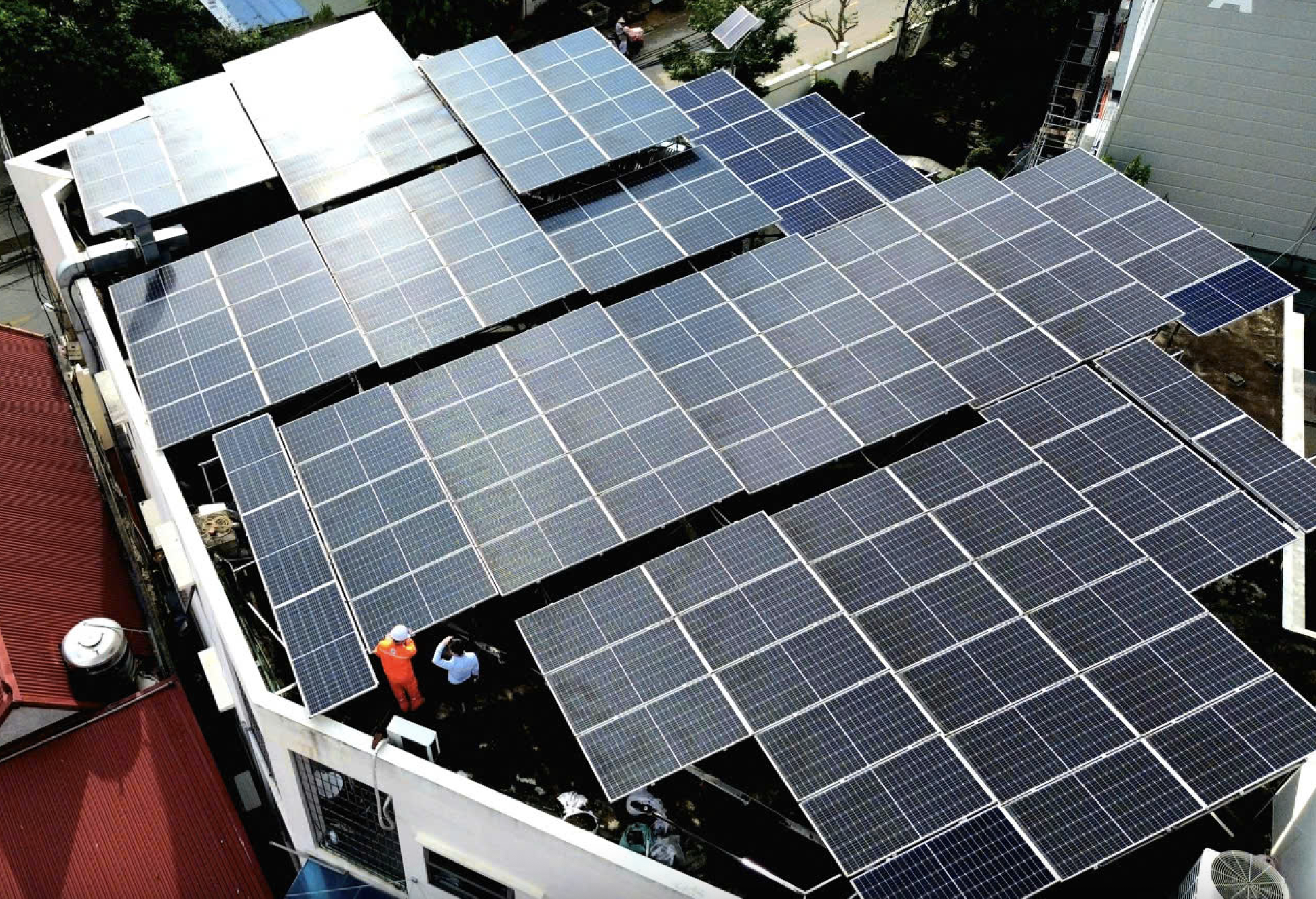The Ministry of Industry and Trade (MOIT) has proposed financial support for households installing rooftop solar power systems in the third draft of a Prime Minister's Decision on supporting residential rooftop solar and battery storage systems.
The MOIT proposes providing 1–1.5 million VND for rooftop solar panel installations. An additional 1–1.5 million VND will be provided for systems that include battery energy storage systems (BESS).
In addition, households may receive interest rate subsidies on commercial loans for up to three years. The loan amount eligible for the interest rate subsidy is at least 4 million VND per kWp of peak capacity, applicable for systems up to 5 kWp, for households without BESS.
Households installing BESS will receive interest rate support on loans of at least 2 million VND per kWh of storage capacity, up to a maximum of 10 kWh.
The policy applies only once per household and may be revoked if commitments are violated.
Compared to the draft released in July, the financial support is now clearly separated between households with and without BESS. Previously, the MOIT proposed a general support of up to 500,000 VND per kWp of installed capacity.
However, the loan limit can now reach 40 million VND for a system, including battery storage. This is an increase from the previous limit of 7 million VND per kWp, not exceeding 35 million VND.
Eligible systems must have a capacity of at least 1 kWp, and storage systems must be at least 2 kWh. For households selling excess electricity, an agreement with the buyer is required to install a two-way meter suitable for the connection capacity.
 |
A rooftop solar power system. Photo: Hong Hanh |
According to the MOIT, the investment cost for a rooftop solar system with battery storage ranges from 12–15 million VND per kWp, or about 65–85 million VND for a 5 kWp system, a common choice for households. Battery storage accounts for 30–35% of the total investment cost.
Vietnam currently has over 103,000 rooftop solar projects with a total installed capacity of over 9,500 MW. According to the adjusted Power Development Plan VIII, Vietnam aims to have 50% of public buildings and 50% of households using rooftop solar power by 2030.
The MOIT estimates that with a maximum government subsidy of 3 million VND per household, and assuming 50% of households (about 14 million) install rooftop solar, the total support could reach 42,000 billion VND between 2026 and 2030. This translates to an annual budget allocation of approximately 8,400 billion VND, or about 250 billion VND per province per year.
However, according to the MOIT, if each household installs an average of 3 kWp, the annual electricity production could exceed 50 billion kWh, equivalent to 16% of the national electricity demand in 2024.
"These distributed energy resources will help reduce investment and operating costs for the transmission grid, reduce the cost of purchasing electricity from higher-priced sources, and lower net emissions for the country," the MOIT stated. The ministry also noted that households will benefit from reduced electricity bills, especially those with high consumption in higher price tiers.
Phuong Dung












